
Find Help
More Items From Ergsy search
-

Is it necessary to stop conventional treatment when starting homeopathy?
Relevance: 100%
-
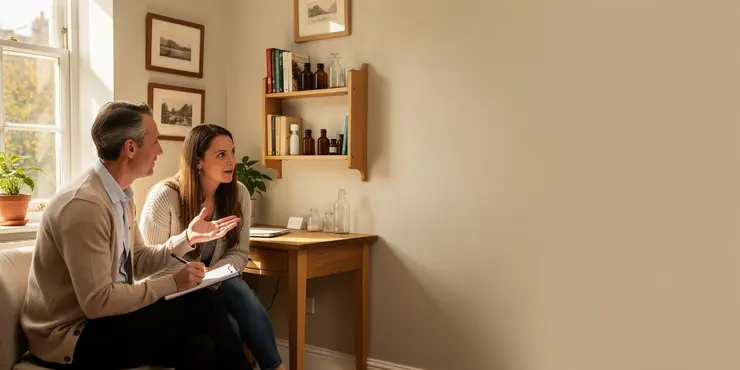
How does homeopathy differ from conventional medicine?
Relevance: 88%
-
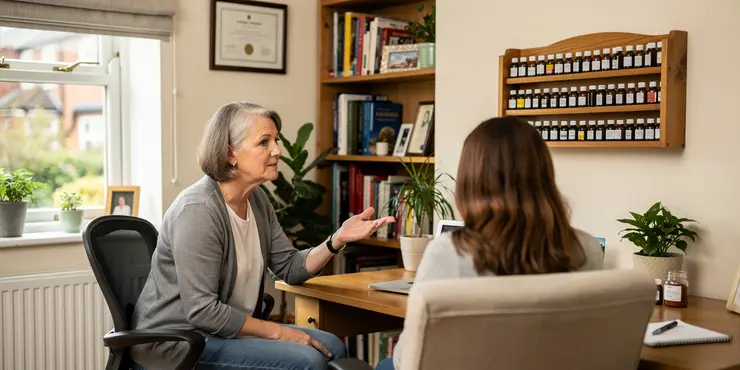
Is homeopathy widely used in the UK?
Relevance: 66%
-

Can homeopathy treat all medical conditions?
Relevance: 65%
-

What are some common conditions treated with homeopathy?
Relevance: 64%
-
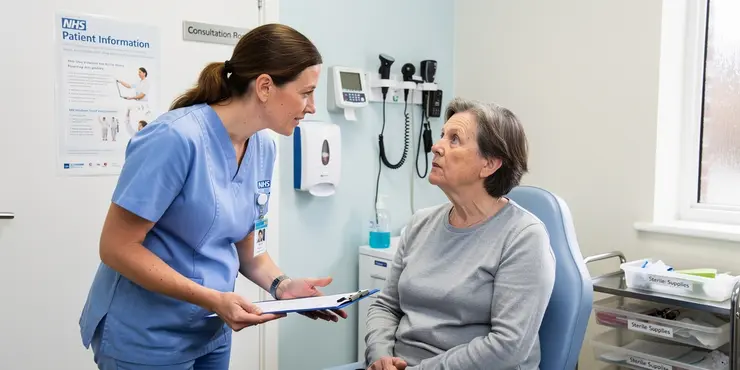
Who founded homeopathy?
Relevance: 63%
-
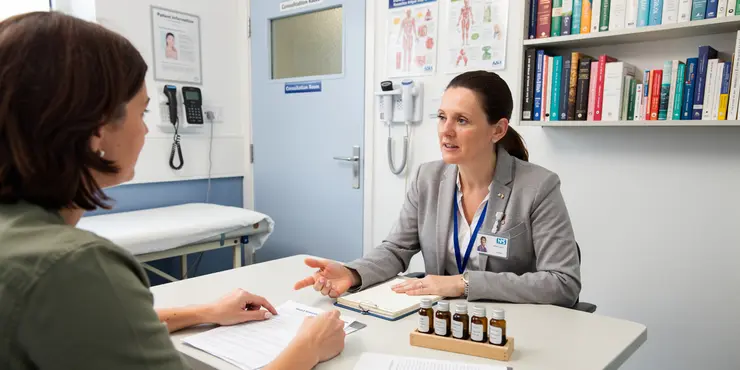
What is Homeopathy and Homeopathic Medecine?
Relevance: 62%
-
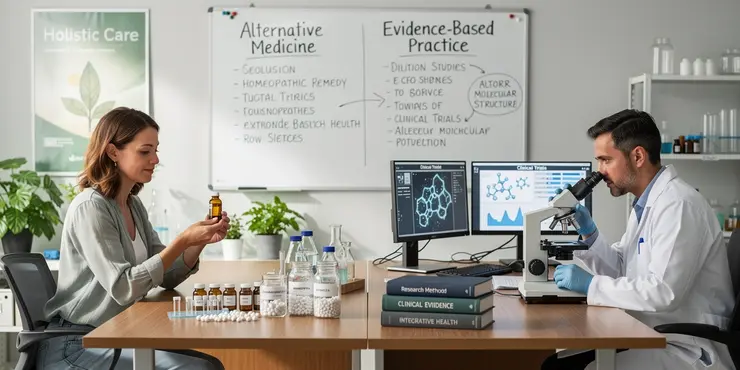
Are there any scientific studies supporting homeopathy?
Relevance: 61%
-

Are homeopathic treatments covered by the NHS?
Relevance: 49%
-

Are homeopathic medicines safe?
Relevance: 41%
-

Do homeopathic medicines contain any active ingredients?
Relevance: 39%
-

What is the principle of 'like cures like'?
Relevance: 38%
-

FFR-CT beat invasive conventional coronary angiography says a Cardiologist
Relevance: 37%
-
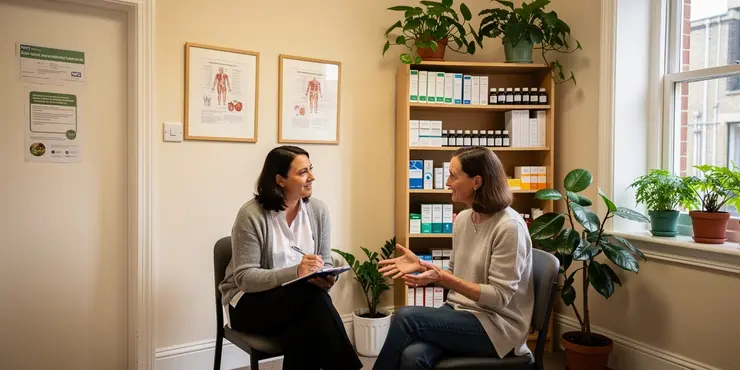
Who can prescribe homeopathic remedies?
Relevance: 35%
-
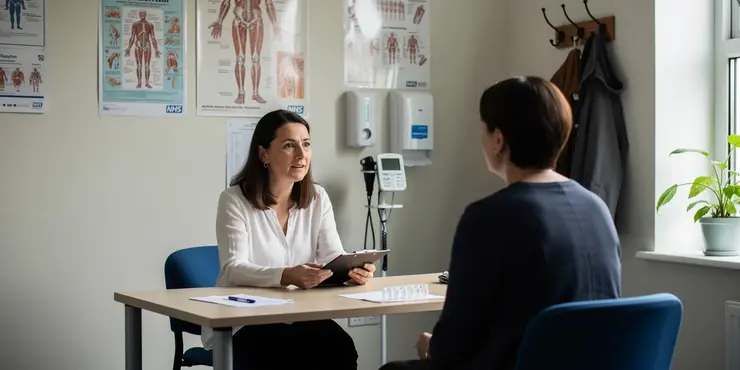
How can I find a qualified homeopath in the UK?
Relevance: 33%
-

Who developed the Paillon treatment?
Relevance: 28%
-
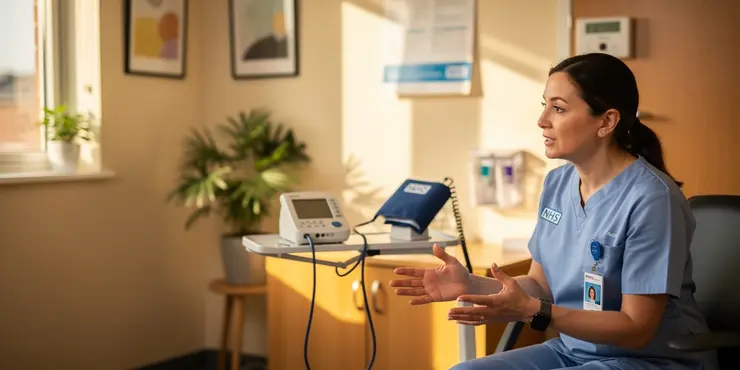
Can Paillon treatment be used alongside traditional therapies?
Relevance: 28%
-

Are inhalers the only treatment for asthma?
Relevance: 26%
-

How are homeopathic medicines made?
Relevance: 26%
-
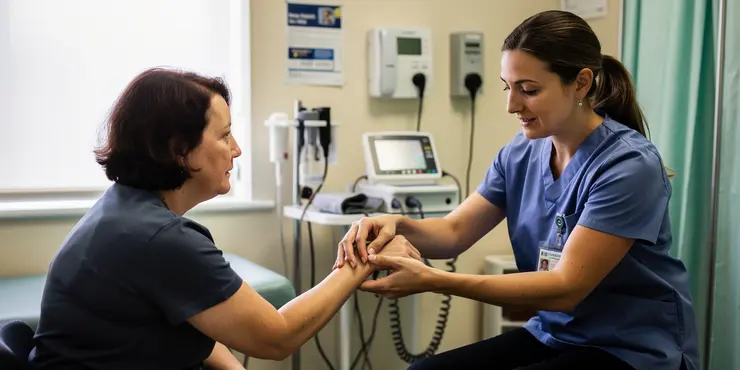
Are there any alternative treatments for Carpal Tunnel Syndrome?
Relevance: 24%
-

Can children with cancer receive Paillon treatment?
Relevance: 24%
-

What is Paillon treatment for cancer?
Relevance: 22%
-
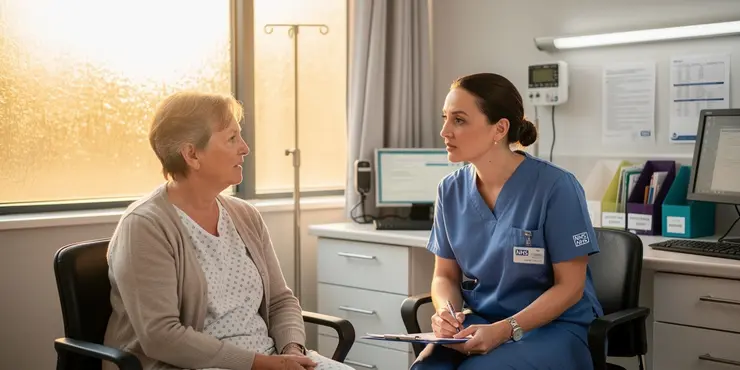
Breakthrough Cancer Treatment Shows Promise for NHS Patients
Relevance: 22%
-

Is Paillon treatment a form of chemotherapy?
Relevance: 22%
-

How does Abiraterone work in cancer treatment?
Relevance: 20%
-
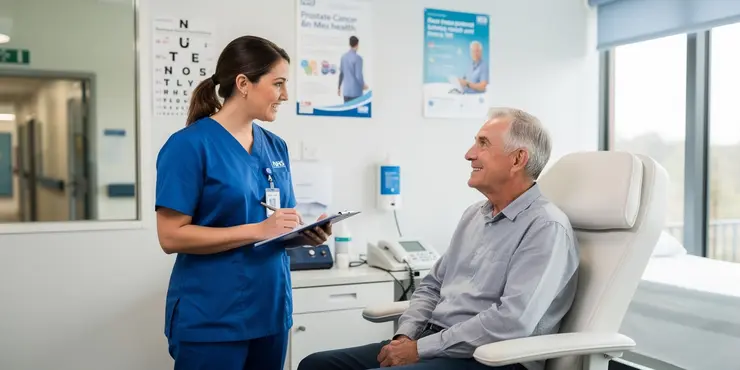
Breakthrough in Cancer Treatment Offers Hope for Prostate Cancer Patients
Relevance: 19%
-

Are there treatments available for postnatal depression?
Relevance: 19%
-

Having chemotherapy and other treatments in the Day Treatment Unit
Relevance: 19%
-

What treatment options are available for psoriasis?
Relevance: 19%
-
Is there a treatment for measles?
Relevance: 19%
-

Is there a treatment for measles?
Relevance: 19%
-
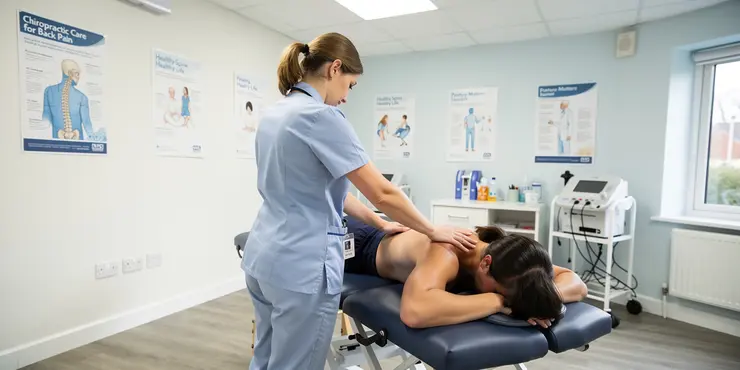
Are chiropractic treatments safe?
Relevance: 19%
-

Is Botox treatment expensive?
Relevance: 19%
-
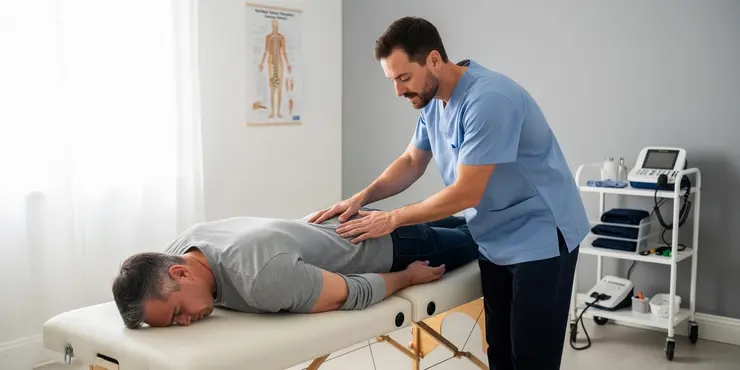
Are chiropractic treatments painful?
Relevance: 18%
-

What treatments are available for Super Flu?
Relevance: 18%
-

What treatments are available for Crohn's disease?
Relevance: 18%
-

What is the treatment for appendicitis?
Relevance: 18%
-

Eating disorders: treatment
Relevance: 18%
-

What treatments are available for motor neurone disease?
Relevance: 18%
-
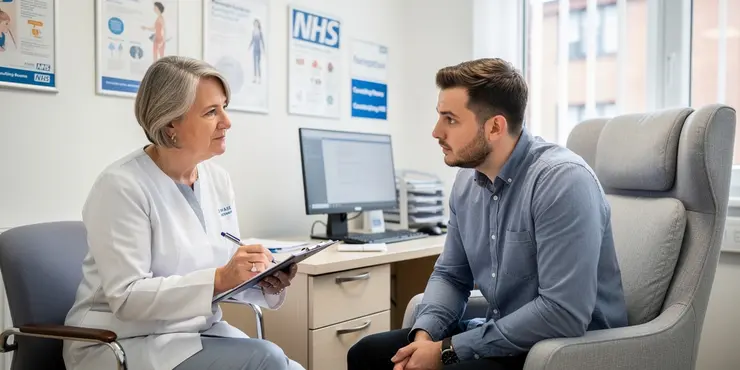
How is Paillon treatment administered?
Relevance: 18%
Is it Necessary to Stop Conventional Treatment When Starting Homeopathy?
Homeopathy, a complementary or alternative form of medicine, has garnered both enthusiasts and skeptics in the United Kingdom. It is based on the clinical principle of treating "like with like" through highly diluted substances. However, those interested in starting homeopathy often question whether they need to stop conventional, allopathic treatments when doing so. This question is particularly pertinent given the entrenched use of conventional medicine within the NHS and the broader UK healthcare system.
Understanding Homeopathy and Conventional Medicine
In the context of healthcare, homeopathy and conventional medicine represent two distinct approaches. Conventional medicine focuses on diagnoses and scientifically tested treatments, like pharmaceuticals and surgeries, to manage symptoms and diseases. On the other hand, homeopathy centers around individualized care and the belief that dilute substances can trigger the body’s natural healing processes. These differing methodologies make it crucial to consider the implications of using them in tandem.
Interaction Between Homeopathy and Conventional Treatments
When introducing homeopathy, patients should not abruptly cease their conventional treatments. Many healthcare professionals, including those who practice integrative medicine, advise against stopping prescribed medications without thorough consultation and supervision. Abruptly discontinuing conventional treatments can lead to adverse health effects, particularly if they are managing chronic or serious health conditions. Moreover, there is limited empirical evidence supporting homeopathy's efficacy in replacing conventional treatments completely.
Consultation and Professional Guidance
In the UK, it is advisable to engage in open discussions with healthcare providers before integrating homeopathy with existing treatments. GPs and specialists can provide insights into potential risks and benefits associated with modifying treatment plans. Additionally, reputable homeopaths will encourage patients to maintain conventional treatments unless there's a clinically justified reason to alter them. The NHS advocates for evidence-based medical guidance, reflecting the importance of professional supervision when exploring alternative therapies.
The Importance of an Informed Decision
Ultimately, the decision to incorporate homeopathy should be informed by professional advice, the patient's health status, and personal beliefs. Individuals must weigh the limitations of both modalities and consider their health priorities. While not mutually exclusive, each approach has unique strengths that may complement the other when applied judiciously. Patients are encouraged to make balanced decisions that align with proven medical advice and personal comfort.
Do I Have to Stop My Treatment When I Start Homeopathy?
Homeopathy is another way to treat people. Some people like it, some don’t. It's called "like with like," using very tiny amounts of something to help you heal. People often ask if they need to stop their normal medicine to try homeopathy. This is important because many people in the UK use regular medicine to get better.
What Are Homeopathy and Regular Medicine?
Homeopathy and regular medicine are two different ways to help people feel better. Regular medicine uses tested treatments like drugs or operations to help with sickness and pain. Homeopathy is different. It uses tiny amounts of things to help your body heal on its own. Because these are different, you need to think about how they work together.
Can I Use Homeopathy and Regular Medicine Together?
Don't stop taking your regular medicine quickly if you want to try homeopathy. Many doctors say to keep taking your medicine unless a doctor tells you to stop. Stopping suddenly can make you feel worse, especially if you have a big health problem. There isn’t a lot of proof that homeopathy can replace regular medicine.
Talk to a Doctor First
If you live in the UK and want to try homeopathy, talk to your doctor first. Your doctor can tell you if it's safe to try both. Good homeopaths will tell you to keep taking your regular medicine unless there is a good reason not to. The NHS thinks it's important to get advice from a doctor when trying new treatments.
Make a Thoughtful Choice
The choice to try homeopathy should be made with your doctor’s help. Think about how healthy you are and what you believe in. Both homeopathy and regular medicine can help, but in different ways that can work together. Make sure your choices make you feel safe and follow what your doctor advises.
Frequently Asked Questions
Is it necessary to stop conventional treatment when starting homeopathy?
No, it is not necessary to stop conventional treatment when starting homeopathy. It's important to consult with your healthcare provider before making any changes to your treatment regimen.
Can I use homeopathy alongside my current medication?
Yes, homeopathy can often be used alongside conventional medication, but always inform your healthcare provider to ensure it's safe for your specific situation.
Will homeopathy interfere with conventional medication?
Generally, homeopathy does not interfere with conventional medication, but it is crucial to discuss with your healthcare provider to avoid any potential interactions.
Should I inform my GP if I start homeopathy?
Yes, it's advisable to inform your GP or healthcare provider if you start homeopathy, especially if you are undergoing other treatments.
Is it safe to combine homeopathy with prescribed medications?
Combining homeopathy with prescribed medications is usually safe, but always check with your doctor to confirm it’s appropriate for your condition.
How does the UK healthcare system view homeopathy?
The UK healthcare system mainly focuses on evidence-based medicine, but some people do use complementary therapies like homeopathy alongside conventional treatment.
Can homeopathy replace conventional medicine in treating serious conditions?
Homeopathy should not replace conventional treatment for serious conditions. It may be used as a complementary approach, but always follow your doctor’s advice.
What should I do if I want to try homeopathy?
If you want to try homeopathy, consider contacting a qualified homeopath and discuss your interest with your healthcare provider.
Are there any risks in switching from conventional medicine to homeopathy?
Switching solely to homeopathy for serious conditions poses risks, such as missing out on proven and necessary treatments. Always consult your doctor before making changes.
Does the NHS cover homeopathic treatments?
As of now, the NHS generally does not cover homeopathic treatments, so they typically need to be paid for privately.
What evidence supports the use of homeopathy?
The scientific evidence supporting homeopathy is controversial, with many studies showing no benefit beyond placebo. Always consider evidence-based treatments as a priority.
Can homeopathy treat chronic conditions effectively?
Homeopathy is not recommended as a primary treatment for chronic conditions. It's crucial to rely on conventional treatments proven effective for your condition.
Who regulates homeopathic practitioners in the UK?
In the UK, homeopathic practitioners are not subject to statutory regulation, but they can voluntarily register with organisations like the Society of Homeopaths.
Is there a difference between homeopathy and herbal medicine?
Yes, homeopathy and herbal medicine are different. Homeopathy uses heavily diluted substances, while herbal medicine uses plants or plant extracts.
Will my private health insurance cover homeopathy?
Coverage varies by provider, so you should check directly with your private health insurance company to see if homeopathy is included in your plan.
Do I need to stop my regular medicine if I start homeopathy?
When you start using homeopathy, you might wonder if you need to stop your regular medicine. It's important to talk to your doctor first. Your doctor can help you decide what's best. They know a lot about medicines and can give you the best advice.
Some people use both regular medicine and homeopathy together. But always check with your doctor or a healthcare expert. They will make sure it's safe for you.
If reading is hard, you can ask someone you trust to explain things. You can also use pictures or ask your doctor for simple words.
No, you do not have to stop regular medicine if you start using homeopathy. Talk to your doctor or healthcare professional before you change your medicine plan.
Can I use homeopathy with my medicine?
Some people want to use homeopathy while taking medicine. Homeopathy is a kind of natural treatment. It is important to ask your doctor or nurse first. They can tell you if it is safe for you. You can also use tools like pictures or videos to help understand the information better.
Yes, you can use homeopathy with regular medicine. But always tell your doctor or nurse so they can make sure it is safe for you.
Does homeopathy mix safely with regular medicine?
Sometimes people take two kinds of medicine: regular medicine from doctors and homeopathy. Homeopathy is a different kind of treatment. It's important to know if they work well together.
If you are taking regular medicine, you should ask your doctor or nurse if it’s okay to use homeopathy too. They can help make sure it’s safe.
You can also use tools like talking with someone you trust or using a medicine checklist to remember what you are taking.
Homeopathy usually works fine with regular medicine. But it's very important to talk to your doctor before using it. This way, you can make sure there are no problems.
Do I need to tell my doctor if I start using homeopathy?
If you begin using homeopathy, it is a good idea to tell your doctor.
Doctors help take care of your health. They can give you advice and make sure it is safe.
You can use pictures or stories to help explain how you feel. You can also ask someone you trust to help you talk to your doctor.
It's a good idea to tell your doctor if you begin homeopathy. This is important if you are having other treatments too.
Is it okay to use homeopathy with medicine from the doctor?
Before you mix homeopathy with other medicine, talk to your doctor. They know what is safe for you.
Here are some things you can do:
- Ask questions if you don't understand something.
- Write down what the doctor says to help you remember.
- Use pictures or drawings to help explain ideas.
Using homeopathy with the medicine your doctor gives you is usually okay. But you should always ask your doctor first to make sure it is safe for you.
What does the UK healthcare system think about homeopathy?
The UK healthcare system does not support homeopathy as a strong way to treat illnesses because there is little scientific proof that it works.
If you want to learn more about this, you can:
- Ask your doctor to explain in simple words.
- Use websites with easy explanations for health topics.
- Watch videos made by trusted health experts.
The UK healthcare system uses medicine that has been proven to work through research. This is called evidence-based medicine. Some people also use other types of treatments, like homeopathy, along with their regular medicine.
Can homeopathy take the place of regular medicine for serious health problems?
Homeopathy is a type of medicine using small amounts of natural things.
Regular medicine is what doctors usually use to make people better.
If you have a serious health problem, it is important to talk to a doctor.
Ask your doctor if homeopathy can help you.
Use helpful tools like talking to a care worker or using picture charts to understand better.
Homeopathy should not take the place of regular medicine for important health problems. You can use it along with your regular treatment, but always listen to what your doctor says.
What can I do if I want to try homeopathy?
Homeopathy is a way to help people feel better. If you want to try it, here is what you can do:
- Talk to a Doctor: Before you start, ask your doctor if it is okay.
- Find a Specialist: Look for someone who knows about homeopathy to help you.
- Ask Questions: If you do not understand something, ask for help.
- Be Safe: Tell the homeopathy specialist and your doctor about any other medicines you take.
It is good to learn more and keep asking for help if things are confusing.
If you want to try homeopathy, talk to a homeopathy doctor. Also, tell your regular doctor about it.
Is it risky to switch from regular medicine to homeopathy?
Yes, there can be risks. It's important to talk to a doctor before making changes.
Regular medicine is tested by scientists. It helps many people. Homeopathy is different. Some people feel better with it, but it is not tested in the same way.
If you want to try homeopathy, you can use these helpful tips:
- Ask a doctor for advice.
- Tell your doctor about all the medicines you take.
- Make sure to get check-ups.
- Learn as much as you can.
If you use only homeopathy for serious health problems, it can be dangerous. You might miss out on treatments that work well. Always talk to your doctor before you make any changes.
Does the NHS pay for homeopathic treatments?
"NHS" means National Health Service. It helps pay for health care in the UK.
Homeopathic treatments are special medicines that are different from regular ones. They use very tiny amounts of natural things to help people feel better.
Sometimes, the NHS might pay for homeopathic treatments, but it does not happen very often. It is a good idea to talk to your doctor to learn more.
If you want help, you can:
- Use simple words when talking about medicine.
- Ask someone to go with you to the doctor.
- Write down your questions before you go.
Right now, the NHS does not pay for homeopathic treatments. This means you usually have to pay for them yourself.
How do we know if homeopathy works?
Homeopathy is a kind of medicine. It uses very small amounts of natural things to help people feel better. But how can we tell if it really helps?
Scientists do studies to see if homeopathy works. They look at how people feel before and after using it. If many people feel better, it might mean homeopathy helps.
Some people say it helps them, like friends or family. Listening to their stories can be one way to learn.
Another way is to ask doctors or look for books about homeopathy. They can have good information.
It's important to know that homeopathy may not work for everyone. It's good to talk to a doctor if you're thinking about using it.
Scientists do not agree if homeopathy works. Many studies show it only works like a sugar pill. It is best to choose treatments that have strong proof they work.
Can homeopathy help with long-term illnesses?
Homeopathy is a way to try and feel better using very tiny amounts of natural things.
Some people think homeopathy can help with long-term illnesses like asthma or allergies.
It's good to talk to a doctor to find out what might be best for you.
Using pictures or talking with someone can help you understand this better.
Do not use homeopathy as the main treatment for long-lasting health problems. It is important to use normal medicines that doctors know work well for your illness.
Who makes sure homeopathy doctors follow the rules in the UK?
In the UK, there are no laws that control homeopathic practitioners. But, they can choose to join groups like the Society of Homeopaths if they want.
Are homeopathy and herbal medicine different?
Yes, they are not the same.
Homeopathy is a way of treating people. It uses tiny amounts of substances to help the body heal itself.
Herbal medicine uses natural plants to help people feel better.
If reading is hard, ask someone for help to understand. You can also use tools that read out loud or show pictures.
Yes, homeopathy and herbal medicine are not the same. Homeopathy uses substances mixed with lots of water until they are very weak. Herbal medicine uses plants or parts of plants.
Does my private health insurance pay for homeopathy?
Homeopathy is a type of treatment with natural remedies.
Check with your health insurance company to see if they pay for homeopathy. You can call them or look at your policy details.
If you find it hard to read your policy, ask someone for help. A friend, family member, or support worker can help you understand it better.
Different companies offer different plans. To find out if your health insurance covers homeopathy, talk to your insurance company. They can tell you if it is included in your plan.
Useful Links
This website offers general information and is not a substitute for professional advice.
Always seek guidance from qualified professionals.
If you have any medical concerns or need urgent help, contact a healthcare professional or emergency services immediately.
Some of this content was generated with AI assistance. We’ve done our best to keep it accurate, helpful, and human-friendly.
- Ergsy carfully checks the information in the videos we provide here.
- Videos shown by Youtube after a video has completed, have NOT been reviewed by ERGSY.
- To view, click the arrow in centre of video.
- Most of the videos you find here will have subtitles and/or closed captions available.
- You may need to turn these on, and choose your preferred language.
- Go to the video you'd like to watch.
- If closed captions (CC) are available, settings will be visible on the bottom right of the video player.
- To turn on Captions, click settings .
- To turn off Captions, click settings again.
More Items From Ergsy search
-

Is it necessary to stop conventional treatment when starting homeopathy?
Relevance: 100%
-

How does homeopathy differ from conventional medicine?
Relevance: 88%
-

Is homeopathy widely used in the UK?
Relevance: 66%
-

Can homeopathy treat all medical conditions?
Relevance: 65%
-

What are some common conditions treated with homeopathy?
Relevance: 64%
-

Who founded homeopathy?
Relevance: 63%
-

What is Homeopathy and Homeopathic Medecine?
Relevance: 62%
-

Are there any scientific studies supporting homeopathy?
Relevance: 61%
-

Are homeopathic treatments covered by the NHS?
Relevance: 49%
-

Are homeopathic medicines safe?
Relevance: 41%
-

Do homeopathic medicines contain any active ingredients?
Relevance: 39%
-

What is the principle of 'like cures like'?
Relevance: 38%
-

FFR-CT beat invasive conventional coronary angiography says a Cardiologist
Relevance: 37%
-

Who can prescribe homeopathic remedies?
Relevance: 35%
-

How can I find a qualified homeopath in the UK?
Relevance: 33%
-

Who developed the Paillon treatment?
Relevance: 28%
-

Can Paillon treatment be used alongside traditional therapies?
Relevance: 28%
-

Are inhalers the only treatment for asthma?
Relevance: 26%
-

How are homeopathic medicines made?
Relevance: 26%
-

Are there any alternative treatments for Carpal Tunnel Syndrome?
Relevance: 24%
-

Can children with cancer receive Paillon treatment?
Relevance: 24%
-

What is Paillon treatment for cancer?
Relevance: 22%
-

Breakthrough Cancer Treatment Shows Promise for NHS Patients
Relevance: 22%
-

Is Paillon treatment a form of chemotherapy?
Relevance: 22%
-

How does Abiraterone work in cancer treatment?
Relevance: 20%
-

Breakthrough in Cancer Treatment Offers Hope for Prostate Cancer Patients
Relevance: 19%
-

Are there treatments available for postnatal depression?
Relevance: 19%
-

Having chemotherapy and other treatments in the Day Treatment Unit
Relevance: 19%
-

What treatment options are available for psoriasis?
Relevance: 19%
-
Is there a treatment for measles?
Relevance: 19%
-

Is there a treatment for measles?
Relevance: 19%
-

Are chiropractic treatments safe?
Relevance: 19%
-

Is Botox treatment expensive?
Relevance: 19%
-

Are chiropractic treatments painful?
Relevance: 18%
-

What treatments are available for Super Flu?
Relevance: 18%
-

What treatments are available for Crohn's disease?
Relevance: 18%
-

What is the treatment for appendicitis?
Relevance: 18%
-

Eating disorders: treatment
Relevance: 18%
-

What treatments are available for motor neurone disease?
Relevance: 18%
-

How is Paillon treatment administered?
Relevance: 18%


